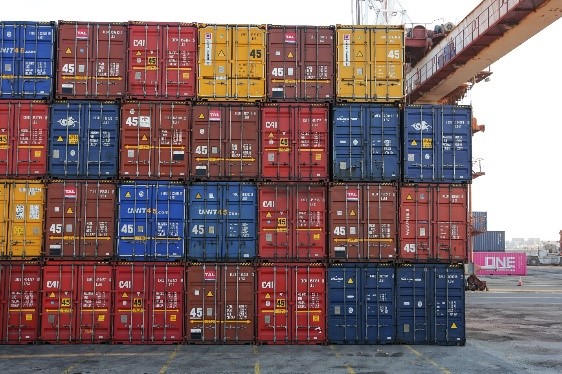Retail and Reshoring Post-COVID by Ryan Edwards
 In the wake of the coronavirus pandemic, many iconic retail brands, such as JCPenney, Neiman Marcus, J. Crew, and Pier 1, have been forced to file for bankruptcy. Many of these prominent retailers have faced dubious financial positions for years and the shutdown was simply the final straw in their decline. However, it didn’t have to be this way. There was a simple solution many of these companies could have experimented with that would have alleviated pain points pre-COVID and afforded them the flexibility to manage unforeseen events such as the pandemic. That seemingly magical solution is reshoring.
In the wake of the coronavirus pandemic, many iconic retail brands, such as JCPenney, Neiman Marcus, J. Crew, and Pier 1, have been forced to file for bankruptcy. Many of these prominent retailers have faced dubious financial positions for years and the shutdown was simply the final straw in their decline. However, it didn’t have to be this way. There was a simple solution many of these companies could have experimented with that would have alleviated pain points pre-COVID and afforded them the flexibility to manage unforeseen events such as the pandemic. That seemingly magical solution is reshoring.
Reshoring, the act of moving manufacturing and sourcing operations to the country where products are primarily sold, offers many benefits to large retailers. Among these benefits are, better management of supply chains, flexibility and adaptability, brand differentiation, and positive PR. Pre-COVID, many of these large retailers were struggling to meet the ever-changing product demands of their consumers. These companies planned inventories months in advance and could not adapt on the fly if a particular product was either a smash hit or total failure. Additionally, consumers became smarter and began to place more importance on factors such as sustainability and domestic production. All three of these concerns could have been addressed by reshoring. Reshoring allows companies to be flexible with their manufacturing operations. It is significantly easier for companies to adjust volumes, styles, and materials when everything is within the borders of a single country. Additionally, bringing manufacturing closer to home allows for better management of these processes and ensures that sustainability practices are implemented, while also taking advantage of the affinity for locally made products.
Reshoring would have also alleviated pandemic related concerns for many of these retailers. While these companies became paralyzed by supply chain disruptions thousands of miles across the world, organizations with locally-based supply chains were taking action to combat the effects of the pandemic. Companies with foreign-based supply chains were left helpless, with no way to travel to these distant locations to try to resolve their problems. Companies with foreign-based supply chains also missed out on the opportunity to provide masks to their communities and recoup some lost revenue in the process. With manufacturing facilities located across the globe, they were unable to quickly adapt and work towards supplying masks and other protective equipment. In essence, these organizations were completely hamstrung as they had little of the flexibility and adaptability domestic supply chains provide. As such, they were particularly vulnerable to the threats posed by dramatic, unforeseen events, like the pandemic.
Going forward, large retailers will need to make major changes if they are to survive in a post-pandemic world. These organizations cannot afford to lack agility any longer. They must respond to changes rapidly and prepare for the uncertainties of our world. Luckily for them, reshoring can solve these problems and many more.
 Ryan Edwards is currently pursuing a Master of Business Administration degree with a Consulting Concentration and Data Analytics Certificate at Texas Christian University. He is a graduate of the University of Texas at Austin where he earned a Bachelor of Science degree in Sport Management with a minor in Business Foundations.
Ryan Edwards is currently pursuing a Master of Business Administration degree with a Consulting Concentration and Data Analytics Certificate at Texas Christian University. He is a graduate of the University of Texas at Austin where he earned a Bachelor of Science degree in Sport Management with a minor in Business Foundations.
In conjunction with his studies at TCU, Ryan is working as a business consultant with JCPenney and will serve as the President of the MBA Consulting Club for the 2020-21 academic year. He is working towards a career in consulting where he can unite his love of problem-solving and his passion for data-driven decision-making. He expects to graduate in May 2021.
Ryan’s professional experience lies primarily in the sporting industry. He has worked for a number of sporting organizations including the Dallas Cowboys, the University of Texas Men’s Basketball team, and the Texas Christian University Men’s Basketball team. He has served in marketing, operations, people management, and data analytics roles throughout his career in sports.



